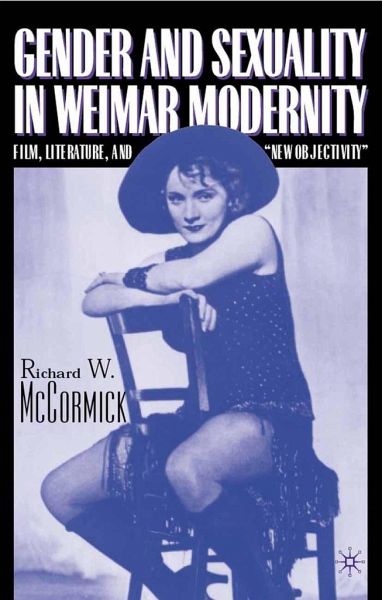
Gender and Sexuality in Weimar Modernity
Film, Literature, and "New Objectivity"

PAYBACK Punkte
29 °P sammeln!
Richard McCormick takes a fresh look at the crisis of gender in Weimar Germany through the analysis of selected cultural texts, both literary and film, characterized under the label 'New Objectivity'. The 'New Objectivity' was characterized by a sober and unsentimental embrace of urban modernity, in contract to Expressionism's horror of technology and belief in 'auratic' art. This movement was profoundly gendered - the epitome of the 'New Objectivity' was the 'New Woman' - working, sexually emancipated, and unsentimental. The book traces the crisis of gender identities, both male and female, a...
Richard McCormick takes a fresh look at the crisis of gender in Weimar Germany through the analysis of selected cultural texts, both literary and film, characterized under the label 'New Objectivity'. The 'New Objectivity' was characterized by a sober and unsentimental embrace of urban modernity, in contract to Expressionism's horror of technology and belief in 'auratic' art. This movement was profoundly gendered - the epitome of the 'New Objectivity' was the 'New Woman' - working, sexually emancipated, and unsentimental. The book traces the crisis of gender identities, both male and female, and reveals how a variety of narratives of the time displaced an assortment of social anxieties onto sexual relations.














